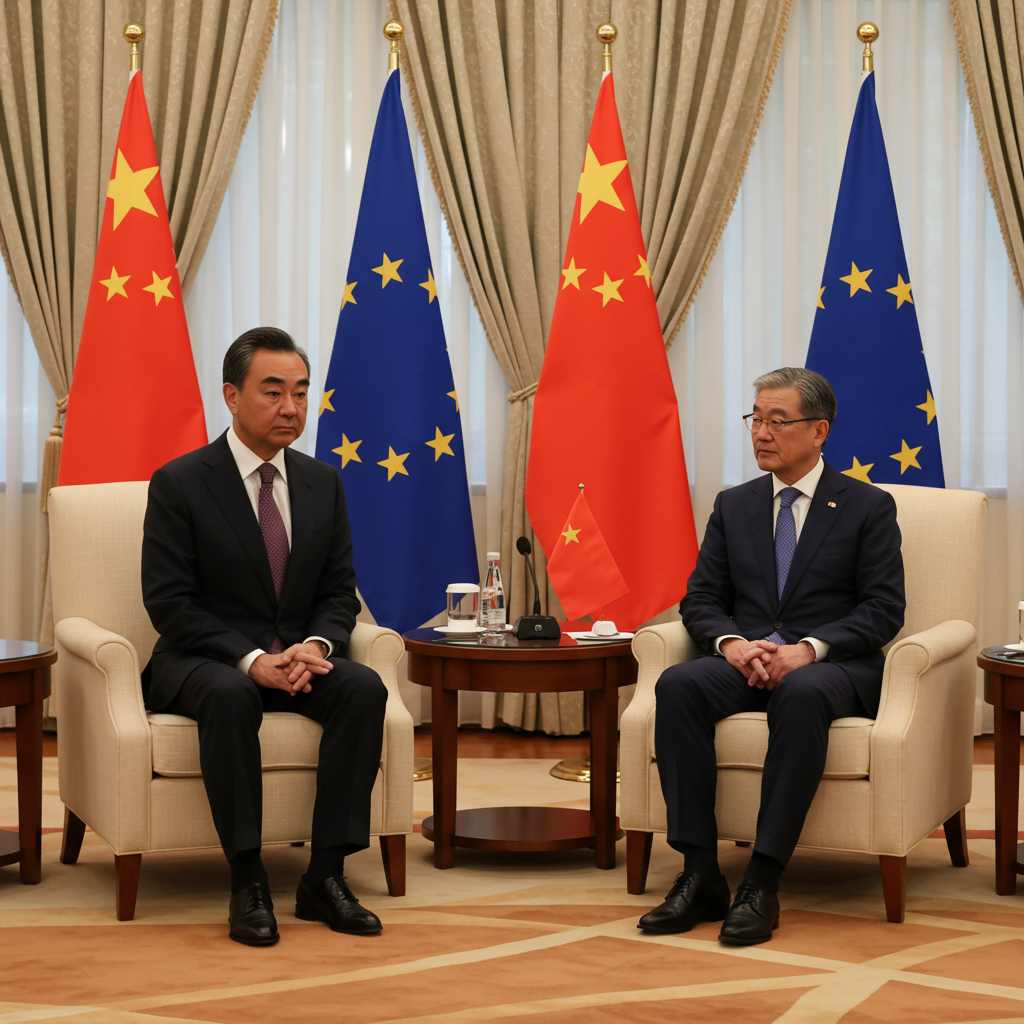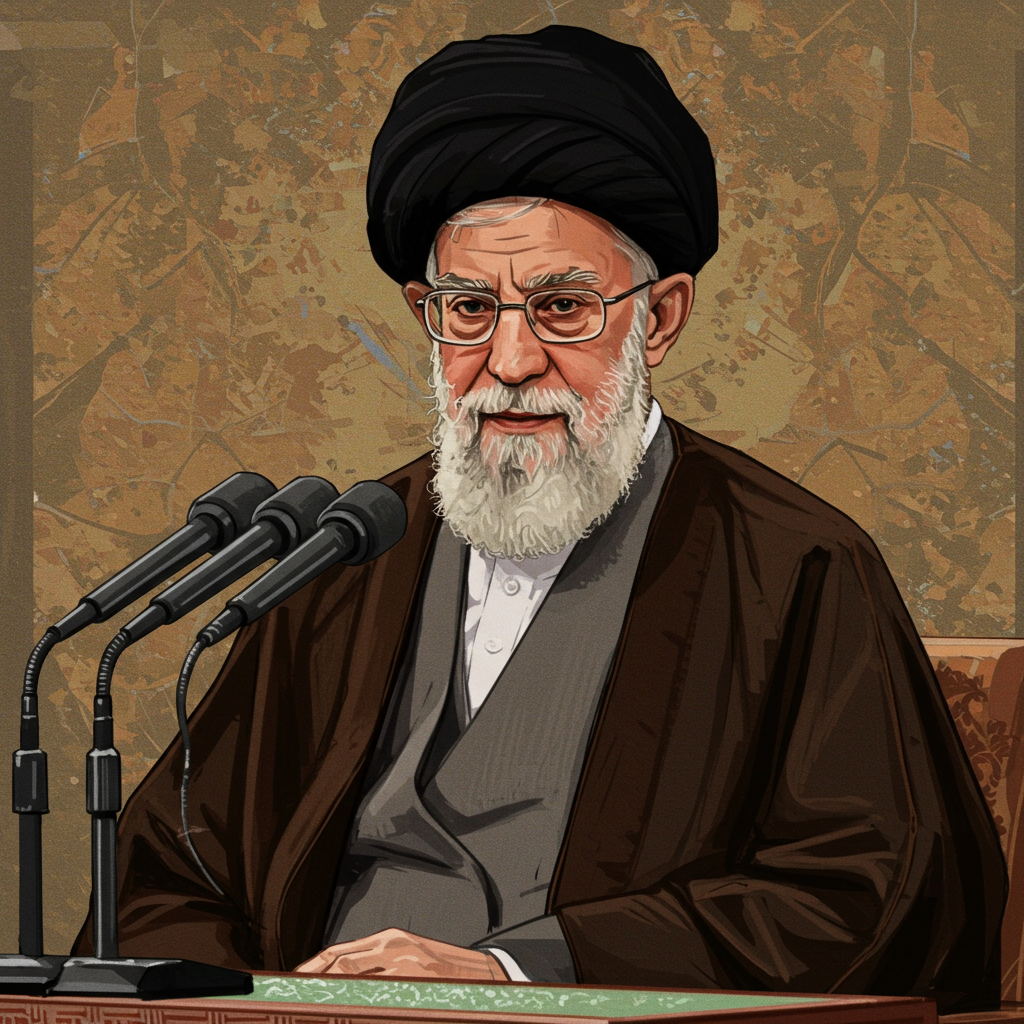A critical exchange between china‘s top diplomat and the European Union’s foreign policy chief reportedly revealed Beijing’s core strategic calculation behind its posture on the Ukraine war. During an extensive meeting this week, Chinese Foreign Minister Wang Yi is said to have informed EU High Representative Kaja Kallas that China cannot accept a russian loss in the conflict. The reason, as conveyed by Wang Yi, stems from Beijing’s significant concern that a Russian defeat would dramatically strengthen the United States’ global position, potentially allowing Washington to exert far greater leverage over China. This reported statement offers a rare glimpse into the high-stakes geopolitical thinking shaping China’s complex stance amidst the ongoing war.
Reports from sources familiar with the conversation describe a lengthy four-hour debate covering a wide array of geopolitical and commercial issues. The South China Morning Post characterized the exchange as a “marathon” discussion where Wang Yi offered Kallas several “history lessons and lectures.” One interpretation highlighted by the SCMP suggests that, while Beijing may not have desired the conflict’s outbreak, its continuation could strategically benefit China, particularly if the United States remains heavily involved in supporting Ukraine.
Beijing’s Strategic Calculus Behind Opposing a Russian Loss
China’s reported position, as articulated by Wang Yi, centers on preventing an outcome that fundamentally alters the global balance of power to the detriment of Beijing. The fear is that a weakened or defeated russia would free up US resources and attention. This shift could allow the US to intensify its focus on countering China’s rise, increasing pressure on Beijing across various fronts, including economic, technological, and military domains. This perspective aligns with a broader view held by some experts that a potential future US administration might see the world through a multipolar lens, where great powers like the US, Russia, and China wield significant influence, sometimes at the expense of smaller states’ sovereignty. In this framework, preventing a rival (Russia) from collapsing against a primary adversary (the US) becomes a strategic imperative for China.
China’s foreign policy underpins this view. Beijing actively seeks to build ties with countries that counter US influence, including Russia, Iran, and North Korea. This strategy isn’t necessarily about forming a rigid “axis of upheaval,” but rather strengthening a network of relationships to navigate a world order perceived as shifting away from US hegemony. Encouraging strategic autonomy in regions like Europe is also a goal, potentially viewing reduced European reliance on the US as an opportunity. While China officially supports talks and a peaceful resolution to the Ukraine war, its reported actions and statements suggest that maintaining its relationship with Russia, a key partner in challenging the US-led order, takes precedence over pressuring Moscow towards a quick end to hostilities on terms unfavorable to Russia.
EU’s Growing Concerns Over China’s Support for Moscow
Despite China’s official denials of providing military support to Russia, the European Union has voiced significant concerns about Beijing’s role in enabling Moscow’s war machine. EU officials specifically point to the flow of technology from China that supports Russia’s defense industry, particularly in the production of drones. This technological support is viewed in Brussels as a direct challenge to the effectiveness of the EU’s extensive sanctions regime against Russia.
David O’Sullivan, the EU’s special envoy responsible for enforcing sanctions against Russia, recently highlighted the scale of this challenge. Speaking at a conference in Kyiv focused on introducing additional sanctions, O’Sullivan estimated that approximately 80 percent of the components Russia uses in weapons production are currently sourced through China. He described this reliance on Chinese components as the single biggest hurdle facing the EU’s efforts to cripple Russia’s military-industrial complex through sanctions. The EU continues to press Beijing to cease this flow of dual-use technology and other components that assist Russia’s war effort, arguing that such support undermines international efforts to restore peace and stability in Ukraine.
Broader Points of Friction and Potential EU Action
The discussion between Wang Yi and Kaja Kallas reportedly went beyond the Ukraine conflict, touching upon other significant areas of friction in the EU-China relationship. According to a statement from Kallas’s office, she specifically challenged China’s “distortive practices.” A key example raised was China’s restrictions on the export of rare earth minerals. Kallas argued that these restrictions pose considerable risks to European companies that rely on these critical materials and endanger the overall reliability of global supply chains.
In a related development, the 27-member EU bloc is reportedly considering concrete steps to address perceived Chinese non-compliance with sanctions against Russia. The South China Morning Post reported that the EU is poised to vote shortly on whether to blacklist two smaller Chinese banks. These banks are accused of facilitating transactions that violate EU sanctions targeting Moscow. Should these measures be approved, they would be included as part of the EU’s forthcoming 18th package of sanctions against Russia, which is also expected to propose measures aimed at halting Russian fossil fuel imports into Europe. This potential move underscores the EU’s increasing willingness to take punitive action against entities, including those in China, found to be circumventing its sanctions policy.
The Influence of Shifting US Policy Towards Ukraine
The geopolitical backdrop to China’s stance includes recent shifts in US policy regarding support for Ukraine, particularly under the current US administration. Reports indicate a decision was made by the Trump administration to suspend certain congressionally approved military aid shipments to Ukraine, including critical items like Patriot interceptors and GMLRS rockets. This move, described by some US lawmakers as a “strategic mistake” and a “gut-punch” to Ukraine’s defenses, has fueled debate about the reliability of US support and its broader strategic implications. A group of fourteen Democratic lawmakers formally urged the Defense Secretary to reverse this decision, arguing it jeopardizes Ukraine’s future and emboldens Russian President Putin.
While some interpret such actions as reflecting a transactional “America First” approach or even a potential “reset” with Russia, other signals from Washington are mixed. For instance, the US President reportedly issued a rare public rebuke of Vladimir Putin following large-scale Russian attacks on Kyiv, urging him to “STOP!” and expressing unexpected optimism about achieving a peace deal, even claiming Russia had made “meaningful concessions.” These contrasting signals from the US add complexity to the global picture. For China, the perception of US unpredictability and potential shifts in focus could influence its calculations regarding US leverage and its strategic relationship with Russia. European leaders, facing the potential for reduced US support, are already discussing taking on a greater share of the burden for Ukraine’s defense independently, a dynamic China may observe with strategic interest.
Frequently Asked Questions
Why does China reportedly oppose a Russian loss in Ukraine?
Chinese Foreign Minister Wang Yi reportedly told the EU’s top diplomat that China fears a Russian defeat would significantly increase the United States’ power and leverage over Beijing. This suggests China views a weakened Russia as enabling the US to intensify its strategic competition with China across various global issues. Maintaining Russia as a partner helps balance perceived US influence.
What specific concerns has the EU raised about China’s support for Russia’s war effort?
The European Union is primarily concerned about the flow of Chinese technology to Russia, particularly components used in drone production. EU special envoy David O’Sullivan estimated that around 80% of components in Russian weapons production come via China. The EU has called on Beijing to stop this flow. Additionally, the EU is considering blacklisting two Chinese banks accused of violating sanctions on Russia.
How do recent shifts in US policy towards Ukraine influence this dynamic?
Reports of the US suspending certain military aid shipments to Ukraine under the current administration create uncertainty about sustained Western support. Some experts suggest this unpredictability influences China’s assessment of US commitment and leverage. While US actions are debated internally and internationally, this dynamic could potentially reinforce China’s strategic view that prolonging the conflict might be advantageous, especially if it continues to divert US resources and attention away from directly confronting Beijing.
A Chinese official’s reported statement to the EU reveals Beijing’s deep-seated strategic anxieties regarding a Russian military defeat in Ukraine. Rooted in the fear of increased US global dominance and leverage over China, this position helps explain China’s complex and often contradictory stance: officially neutral but seemingly providing economic and technological support to Moscow. The tension between China and the EU over sanctions circumvention and tech flow, alongside the broader shifts in US policy towards Ukraine, underscore the interconnectedness of these major power dynamics. As the conflict and the global geopolitical landscape continue to evolve, China’s actions will remain a crucial factor shaping potential outcomes for Ukraine, Russia, and the international order.
Word Count Check: 1046 words




